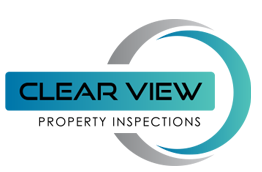Pool Barrier Certification
Looking for a reliable and trustworthy pool barrier certification service in Sydney, NSW? Look no further than our team of expert inspectors! We understand the importance of pool safety and compliance and are committed to helping you ensure that your pool barrier is up to standard. Our team of qualified and certified inspectors has years of experience in the industry. It is dedicated to providing thorough, accurate inspections that comply with relevant regulations and standards.
Pool Barrier Certification is crucial to ensuring pool safety in NSW, Sydney. As a property owner, it is your responsibility to ensure that your pool is safe and compliant with the regulations set out by the state government. The certification process involves comprehensively inspecting your pool’s barrier to ensure it meets the required safety standards. This certification aims to prevent accidents and fatalities caused by non-compliant pool barriers, particularly among young children. Below, we discuss the pool barrier certification requirements in NSW and Sydney, the benefits of certification, the consequences of non-compliance, and how to choose the right pool barrier inspector.
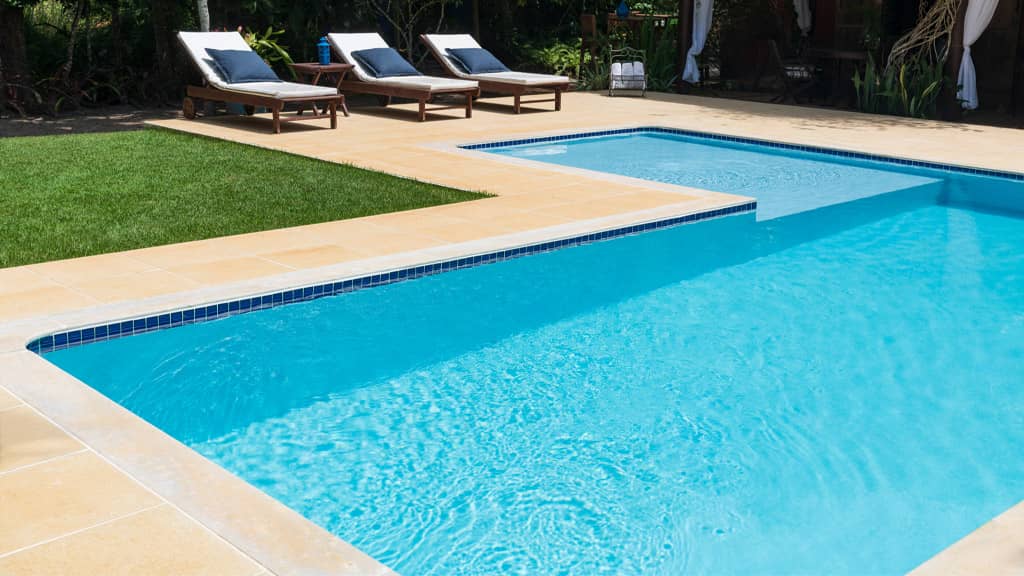
During a pool safety inspection, there are several common issues that may be uncovered
Pool safety laws in NSW, Sydney
Swimming pool safety laws in NSW, specifically Sydney, necessitate property owners to ensure the safety and compliance of their pools or spas with specified regulations. The primary purpose of these regulations is to prevent accidents and fatalities arising from non-compliant pool barriers, particularly among young children. Following the Swimming Pools Act 1992, all pools in NSW must possess a compliant barrier that meets designated standards. This barrier should be diligently maintained and inspected to adhere to the required norms consistently. Failure on the part of pool owners to adhere to the stipulated pool safety laws may result in severe penalties and fines being imposed upon them. Thus, it becomes paramount for individuals residing within NSW or visiting Sydney’s swimming facilities as guests need assurance regarding adherence certification coupled with overall compliance to safeguard familial welfare and visiting friends well-being efficiently during recreational activities involving water activities.
Importance of pool safety and barrier certification
Pool safety and barrier certification are critical components in ensuring the safety of people using swimming pools in Sydney NSW. Non-compliant pool barriers’ potential risks and dangers are significant, particularly among young children. These risks include accidental drowning and injuries resulting from falls, slips, or entrapment in the pool barrier. Pool safety and barrier certification ensure that pool barriers meet specific safety standards and prevent accidents from occurring. Additionally, obtaining certification provides property owners peace of mind, knowing their pool is safe and compliant. Compliance with pool safety laws is also essential for avoiding potential legal liability from accidents or injuries due to non-compliant pool barriers. Overall, pool safety and barrier certification are crucial for protecting the safety of individuals using swimming pools and avoiding potential legal and financial consequences.
Pool Barrier Certification Requirements
Legal Requirements
The pool safety laws in Sydney NSW, aim to guarantee safety and adherence to specific swimming pools and spas regulations. These regulations obligate pool owners to establish and uphold a pool barrier that meets prescribed standards. The subsequent passage provides an elaborate summary of the established pool safety laws in NSW, especially regarding Sydney:
- Pool Barrier Requirements: According to the legislation established in the Swimming Pools Act 1992, it is mandatory for all pools and spas located in NSW, including Sydney, to have a pool barrier that meets specific criteria. This includes having a barrier height of at least 1.2 meters with a smooth surface that cannot be climbed. Additionally, there should be no gaps or openings that could provide access to the pool area. Furthermore, the gate of the pool barrier must possess self-closing and self-latching mechanisms while opening away from the pool area.
- Pool Barrier Inspections: To ensure adherence to safety regulations, it is incumbent upon pool owners to regularly inspect and adequately maintain their pool barriers. A certified pool inspector, a council officer, or a private certifier may conduct these inspections. The inspection procedure entails conducting a comprehensive assessment of the pool barrier to assess its compliance with requisite safety standards.
- Compliance Certificates: After the inspection of the pool barrier, if it meets all regulatory requirements, a compliance certificate will be issued to the pool owner. This certification remains valid for three years and must be renewed before expiration. Acknowledging that not obtaining a compliance certificate can lead to substantial penalties and fines is important.
- Fines and Penalties: Failure to comply with the swimming pool safety regulations in NSW, Sydney can lead to severe consequences and financial repercussions. Violators may be subject to fines ranging from $220 to $5500, and repeat offenders could face additional penalties.
In NSW, Sydney, some regulations mandate pool owners to install and maintain a pool barrier that adheres to specific safety standards. Pool owners need to undergo routine inspections and obtain a compliance certificate to ensure ongoing adherence and prevent the possibility of facing penalties or fines.
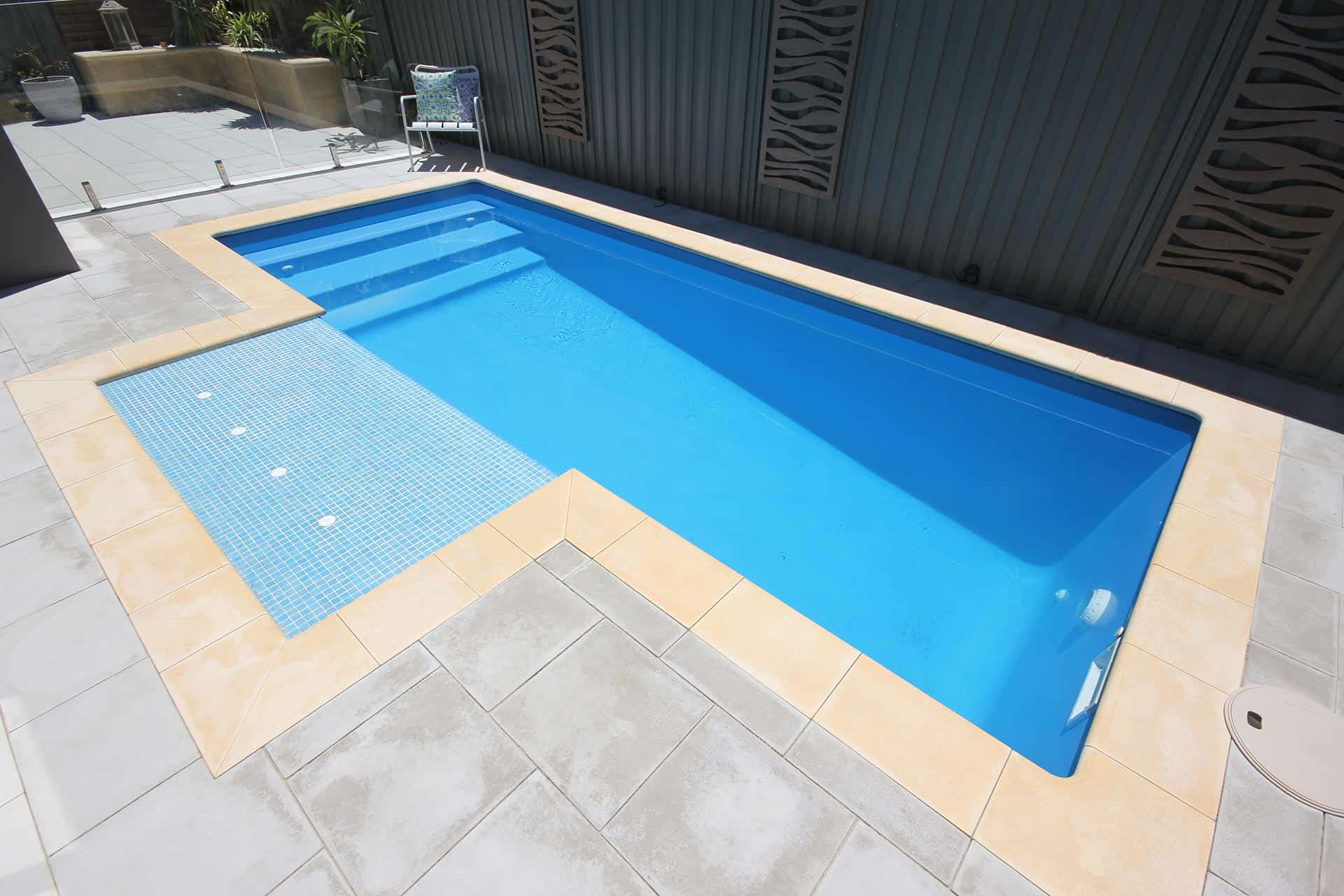
Swimming Pools Act 1992, all pools and spas in NSW, Sydney must have a compliant pool barrier
Pool Barriers
In Sydney, NSW, pool owners must ensure that their pool enclosure meets specific requirements to obtain certification. Certification involves a thorough assessment to ensure compliance with the necessary safety standards. Here are the key requirements for pool enclosures in Sydney:
- Height: The height of the pool enclosure must be at least 1.2 meters from ground level.
- Non-climbable surface: The pool enclosure’s surface should be designed so that it is difficult for children to climb over, and there should not be any objects or structures within 900mm of the perimeter that could provide access to the pool area.
- Gaps and openings: There should not be any gaps or openings within the structure of the pool enclosure that might enable a child to gain entry into the swimming area. For instance, any spaces between vertical bars must not exceed 100mm, and there ought to be no gap larger than 100mm between ground level and the bottom edge of the barrier.
- It is a regulatory requirement for pool barriers to be equipped with a self-closing and self-latching gate at least 1500mm above the ground.
- To ensure safety, any door that provides direct access to the pool area should have an alarm system that alerts when the door is opened.
- Within the pool area, it is important to display a sign detailing CPR instructions prominently.
To maintain compliance with safety standards, owners must arrange regular inspections of their pool barrier conducted by certified inspectors or council officers. Once assessed and deemed compliant, a compliance certificate will be issued, which remains valid for three years and requires timely renewal before expiration.
Pool Inspection Process
The pool barrier inspection process in NSW, Sydney, entails thoroughly examining the pool barrier to ensure compliance with safety standards. The following steps are involved:
- Scheduling an Inspection: Pool owners must arrange for an inspection of their pool barrier by a certified inspector from a council officer or private certifier.
- Day of Inspection: On the designated day, the inspector will arrive and evaluate the pool barrier against the requirements outlined in both the Swimming Pools Act 1992 and Australian Standard AS1926.1-2012.
- Checklisting: The inspector will utilize a checklist to assess various aspects of the pool barricade, such as height, non-climbable surfaces, gaps and openings, self-closing and self-latching gate mechanisms, door alarms, and proper CPR signage display.
- Inspection Findings: The inspector will prepare a comprehensive report outlining the inspection process findings. If it is determined that the pool barrier fails to meet the necessary safety standards, the report will specify the remedial measures required.
- Certification of Compliance: In cases where the pool barrier meets all safety requirements, the inspector will issue an official compliance certificate valid for three years. However, if there are deficiencies in need of correction, pool owners must address these issues and schedule a follow-up inspection to obtain their compliance certificate.
It should be emphasized that strict adherence to this pool barrier inspection procedure ensures strict compliance with prevailing safety regulations within NSW Sydney jurisdiction. By obtaining a valid compliance certification, pool owners can have confidence in knowing that their swimming pools provide utmost safety and protection.”
Pool Safety and Compliance
Families and children
Promoting pool safety is paramount for the well-being of families and young individuals. While pools can be a source of enjoyment and relaxation, it is imperative to implement proper safety measures to avoid potential hazards. Here are several compelling reasons why prioritizing pool safety is critical:
- Drowning prevention: Unintentional drowning is one of Australia’s primary causes of accidental deaths among children under five. By emphasizing pool safety precautions, families can effectively mitigate the risk of drowning and safeguard their children.
- Adherence to regulatory requirements: In NSW, every pool owner must adhere to specified standards regarding their pool enclosure’s compliance with established regulations. Neglecting these legal obligations may incur fines and other legal ramifications.
- Peace of mind: By prioritizing pool safety, families can have the assurance that their dear ones are protected while making the most out of their pool.
- Legal responsibility: In the event of an unfortunate incident on a property with a pool, the owner can bear legal accountability for any injuries or fatalities incurred. Pool owners may mitigate their liability and safeguard themselves and their possessions by ensuring sufficient measures for pool safety.
Guaranteeing pool safety is paramount when considering the well-being of families and children. By adopting necessary precautionary steps, pool owners can prevent mishaps from happening.
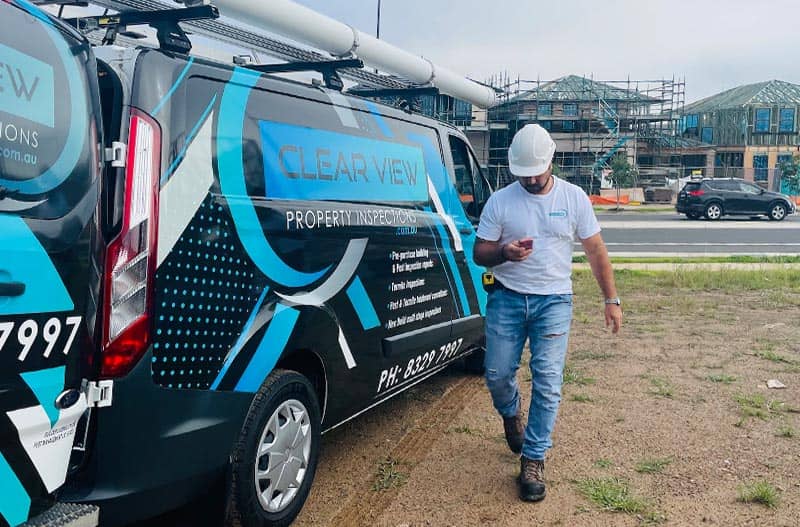
Pool safety inspector ensuring pool safety for families and children
Non-compliant pool barriers
Non-compliant pool barriers can present significant dangers and risks, particularly for young children. These hazards include the high possibility of drowning and entrapment. If a pool barrier is not properly installed or maintained, children have unsupervised access to the pool area, substantially increasing their risk of drowning. Additionally, inadequate pool barriers with gaps or openings that are too large can result in entrapment, where a child’s head or body becomes trapped, potentially causing severe injuries or suffocation. Noncompliant pool barriers can pose significant risks and dangers to young children, resulting in severe injuries or even fatalities. It is surprising how frequently defective, inadequate, or absent pool fencing continues to contribute to drowning incidents among young children.
Research shows that implementing effective countermeasures, such as isolating the pool with secure and well-maintained fences equipped with self-latching gates and free from climbable objects, can significantly reduce the risk of child drowning. Legislative requirements for installing safety barriers have been progressively introduced across all Australian states since the early 1990s; however, there are variations in both legislative mandates and enforcement procedures.
Pool owners should know non-compliance may result in legal liability for injuries or fatalities incurred on their property. To ensure a safe swimming environment for children near pools/spas, compliant barrier systems must be installed.
Pool barrier certification benefits
Certification of pool barriers offers several advantages to property owners, including adherence to legal requirements. In NSW, all pool owners must comply with the law by ensuring their pool barrier meets regulatory standards. Obtaining certification guarantees that the pool barrier is in compliance and helps property owners avoid potential legal repercussions or penalties. Additionally, obtaining certification provides a sense of reassurance for property owners. They can know their loved ones and guests are safe within a secure and reliable pool barrier.
Furthermore, certified compliant pool barriers contribute to an increase in property value. A licensed inspector’s verification demonstrates that the property possesses a well-maintained and secure swimming area—enhancing its desirability amongst potential buyers—and ultimately elevating its market worth.
By obtaining pool barrier certification, property owners can reduce their liability and protect themselves from potential injuries or fatalities due to non-compliant pool barriers. This certification ensures that a professional inspector thoroughly examines the pool barrier for any hazards or issues, allowing property owners to address them promptly and prevent accidents. In addition to compliance with the law, obtaining this certification offers benefits such as peace of mind, increased property value, reduced liability, and access to expert inspections.
Consequences of Non-Compliance
In New South Wales, property owners can be held accountable for accidents or injuries resulting from inadequate pool barriers. Suppose someone is harmed or loses their life due to a non-compliant pool barrier. In that case, the owner may bear responsibility for any awarded damages or compensation given to the victim or their family.
Penalties and fines for non-compliant pool barriers
Non-compliance with pool safety laws in New South Wales can result in substantial penalties and fines for property owners. The severity of the consequences depends on the specific circumstances of each case. Still, they may include monetary repercussions such as on-the-spot fines issued by local councils or NSW Fair Trading. These fines range from $220 to $550, depending on the gravity of the violation. In more severe cases, penalty notices ranging from $550 to $2,200 can be imposed for significant breaches of pool safety regulations. For instances where a property owner is found guilty of a serious breach through legal proceedings, court-imposed fines up to a maximum amount of $5,500 are possible.
Local councils have the authority to issue orders requiring property owners to rectify pool barriers that do not meet safety standards. Failure to comply with these orders can lead to additional penalties and legal consequences. In cases where accidents occur in properties with non-compliant pool barriers, the pool owner can be held responsible for any injuries or fatalities in civil court proceedings. This may result in substantial financial liabilities and legal expenses.
Inadequate compliance with pool barrier regulations can expose property owners to fines and penalties, such as on-the-spot penalty notices, court-imposed fines, council orders, and potential civil liability lawsuits. By obtaining certification for their pool barriers, property owners can avoid these penalties while ensuring the safety of their family members and visitors.
Liability for accidents or injuries due to non-compliant pool barriers
Liability for accidents arising from non-compliant pool barriers encompasses two primary legal areas: civil liability and criminal liability. Civil liability arises when an individual or organization is deemed responsible for compensating damages in a civil court case. On the other hand, criminal liability occurs when an individual or organization faces charges related to criminal offences such as negligence or manslaughter.
In an accident caused by a pool barrier that does not meet safety regulations, the owner may be held accountable for any injuries or damages. This liability could result in compensatory measures such as covering medical expenses, lost wages, emotional distress compensation, and other related costs. In some cases, criminal charges related to negligence or similar offences may also occur.
To mitigate the risk of being liable for accidents or injuries resulting from non-compliant pool barriers, owners should ensure that their pool barriers adhere to all safety standards and regulations. Property owners can safeguard themselves against potential legal consequences and financial burdens arising from non-compliance by obtaining certification for their pool barriers while maintaining a safe swimming environment.
Regular Pool Inspections
Maintaining and conducting regular inspections of swimming pool barriers is vital to upholding safety standards and providing a secure environment for swimmers. Time can deteriorate pool barriers, leading to damage or failure due to natural wear and tear or exposure to external elements. Thorough inspections enable the identification of any faults in fencing, gates, locks, or signage on the premises. This allows property owners to promptly address these issues and ensure their pool barrier adheres to established safety regulations.
Regular maintenance also plays a significant role in extending the lifespan of a pool barrier. It entails routine cleaning and repairing or replacing damaged components like fencing or locks. By consistently maintaining their pool barriers, property owners can avoid expensive repairs or replacements that may become necessary if they neglect proper upkeep practices.
In addition to ensuring the safety of swimmers, property owners can avoid legal and financial consequences by regularly maintaining and inspecting their pool barriers. By demonstrating proactive measures to ensure pool safety, they can minimize liability risks in case of accidents or injuries. Ultimately, regular maintenance and inspections are crucial in compliance with safety regulations, creating a safe environment for swimmers, and safeguarding property owners from potential legal issues and financial burdens.
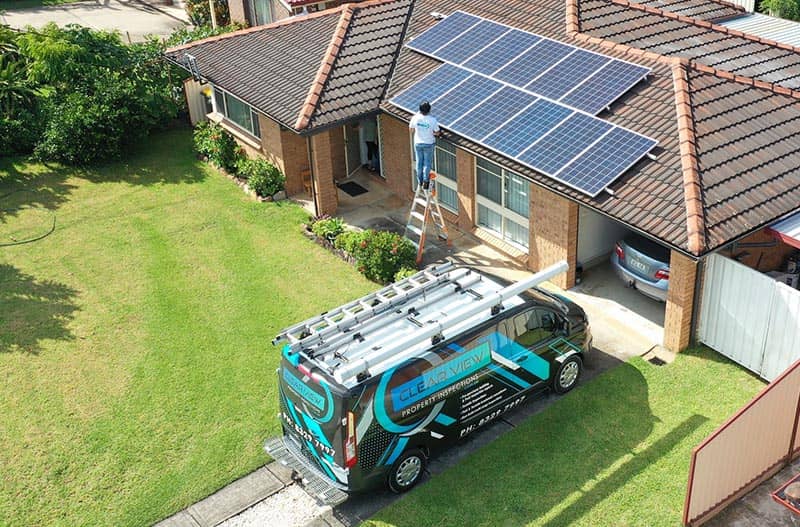
Inadequate signage: There may not be adequate signage around the pool area to warn of potential hazards or to provide emergency instructions
Pool Barrier Inspector
Qualifications and certifications to look for in a pool barrier inspector
When selecting a pool barrier inspector, it is essential to consider their qualifications and certifications to ensure you are collaborating with a skilled professional. These criteria include the following:
- Expertise in the building and construction industry: Choosing a pool barrier inspector with experience in the building and construction field is advisable. This ensures that they possess comprehensive knowledge of the regulations and standards of pool safety, enabling them to assess your pool barrier’s safety effectively.
- Certification for inspecting pool barriers: You should opt for an accredited inspector experienced in examining pool barriers. In NSW, regulatory mandates stipulate that these inspectors must hold an official Certificate of Accreditation issued by the Building Professionals Board.
- Qualifications of inspectors: Many individuals performing pool barrier inspections have obtained qualifications as building inspectors, indicating their training in building and construction standards and ability to assess the safety of various structures, including pool barriers.
- Ongoing professional development: Selecting a pool barrier inspector who actively seeks ongoing training and professional development opportunities is advisable. This demonstrates their commitment to staying updated on current regulations and pool safety standards, ensuring they offer the highest level of service.
- Insurance coverage: It is important for the chosen pool barrier inspector to possess both professional indemnity and public liability insurance. These types of coverage protect both the inspector and property owner in cases where issues or damages arise during the inspection process.
When choosing an individual to inspect your pool barrier, selecting someone with the necessary qualifications, relevant experience, and a strong dedication towards continuous professional growth is imperative. This ensures that you can trust in the adherence of your pool barrier to safety standards and guarantee the well-being of individuals utilizing your swimming pool.
Reputation and experience of pool barrier inspectors
When selecting a pool barrier inspector, it is crucial to consider their reputation and level of expertise. Here are some factors that should be considered:
- Customer reviews and references: Take the time to review online testimonials and feedback from previous clients. This will give you valuable insights into the inspector’s reputation and the quality of their work.
- Experience: Consider how long the pool barrier inspector has been in business and how many inspections they have conducted thus far. A higher level of experience typically indicates a greater degree of expertise and knowledge.
- Affiliations with professional organizations: Look for pool barrier inspectors affiliated with reputable professional organizations or industry associations. Such affiliations demonstrate a commitment to maintaining high standards within the field, ensuring professionalism throughout inspection processes.
When selecting a pool barrier inspector, it is crucial to consider their training and certifications. They must possess the qualifications and certifications to effectively perform inspections under current regulations and standards. In addition, assessing the communication skills of potential inspectors is vital. Are they responsive when you reach out with inquiries? Do they provide clear explanations of their findings? Effective communication plays a significant role in facilitating a successful inspection process.
Choosing an experienced pool barrier inspector with a strong reputation, extensive knowledge, and the required qualifications and certifications is paramount. By doing so, you can have confidence in the compliance and safety of your pool barrier while ensuring its usability for those who utilize your swimming facility without any concerns for their well-being or security.
Importance of choosing a reliable and trustworthy pool barrier inspector
Ensuring the safety and compliance of your pool barrier requires selecting a reputable and dependable inspector. The importance of this choice lies in several factors:
- Adherence to regulations: A reliable and trustworthy inspector will prioritize compliance with all applicable regulations and standards regarding your pool barrier. This adherence helps you avoid penalties and fines while safeguarding those who utilize your pool.
- User safety: A competent pool barrier inspector can identify any potential hazards or risks associated with your installation through thoroughness and diligence. By addressing these concerns promptly, you can implement preventive measures that reduce accidents or injuries effectively.
- Peaceful assurance: Opting for a reputable and trustworthy pool barrier inspector grants peace of mind, knowing that your protective installation is safe and compliant with regulatory parameters. With reduced worry concerning pool safety matters, you can confidently enjoy the benefits of having a private swimming facility on the premises.
Investing in a reliable and reputable pool barrier inspector can offer long-term cost savings. By promptly identifying any issues, you can address them before they escalate into more costly or time-consuming problems. Furthermore, selecting an inspector with a strong reputation ensures you receive accurate and comprehensive reports, guaranteeing the highest pool safety standards. It is essential to devote sufficient time to researching and choosing an inspector with the proper qualifications, certifications, and experience and a track record of conducting thorough inspections for optimal compliance and enjoyment of your pool area.
Guaranteed Pool Barrier Inspection Service
When you choose our services for your pool barrier certification needs, you can anticipate a comprehensive and meticulous inspection of your pool barrier. Our experienced inspectors will identify potential safety hazards or risks to ensure your pool barrier meets all relevant regulations and standards. By entrusting us with the certification process, you can avoid fines and penalties associated with non-compliance. Furthermore, we provide detailed reports outlining our findings and necessary maintenance or repair recommendations. With our expertise in inspections, you can have peace of mind knowing that your pool barrier is safe and compliant, thus ensuring the wellbeing of those who use your pool facility.
Don’t take chances with pool safety – trust our pool barrier certification service experts to help you keep your pool safe and compliant. Contact us today to schedule your inspection!
